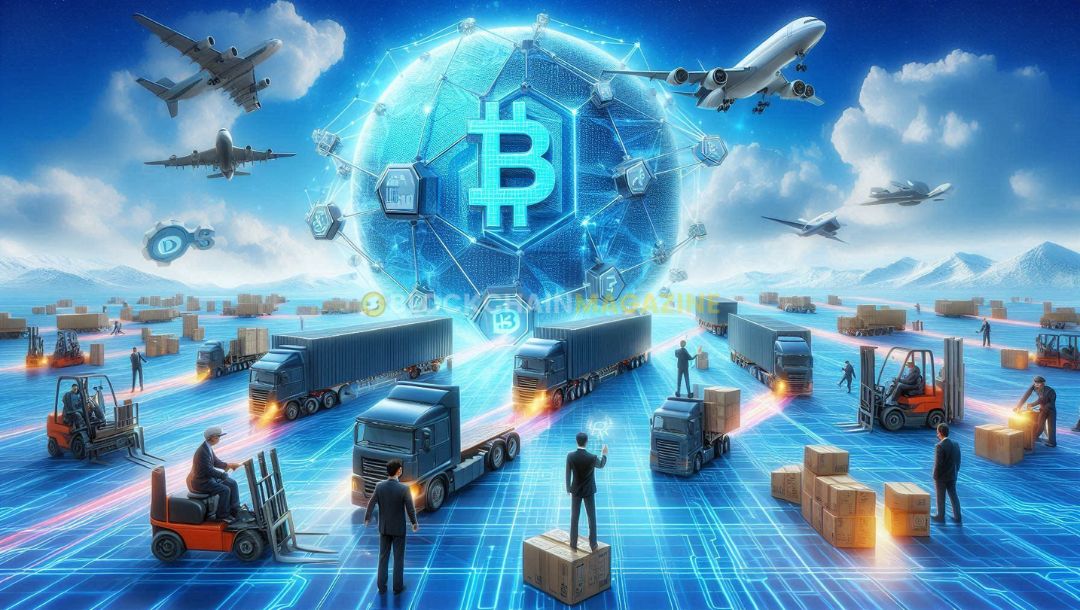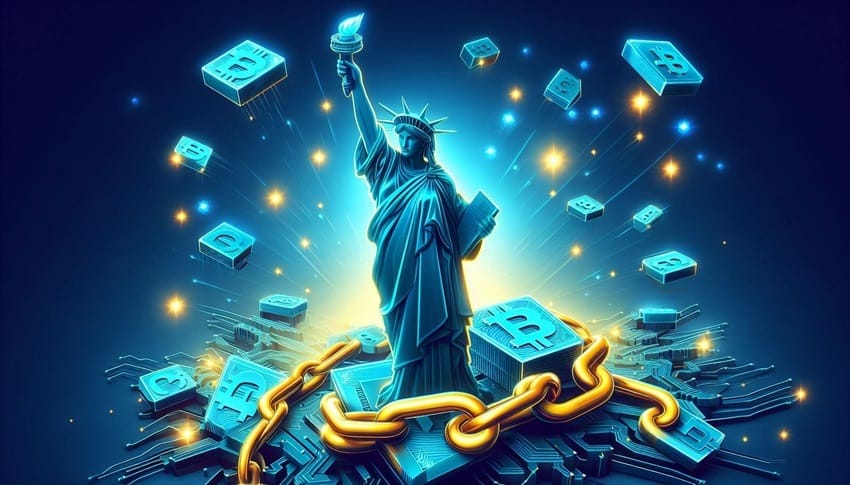Blockchain Enabled Supply Chain Traceability: Enhancing Transparency and Efficiency
In today’s world, where everything is connected, trust is very important. Blockchain technology has the power to change supply chains by making them more open and efficient. By using a shared and unchangeable ledger, blockchain can help track products from start to finish, making sure everything is safe and genuine. This article explores how blockchain can improve supply chains in different industries, from food to medicine.
Key Takeaways
- Blockchain creates a shared and unchangeable record of transactions, boosting trust and security in supply chains.
- It allows for real-time tracking of products, helping to prevent fraud and ensure product authenticity.
- Blockchain supports ethical and sustainable practices by providing clear information on product origins and labor conditions.
- In the food industry, blockchain can quickly trace the source of contamination, ensuring food safety.
- The technology faces challenges like data integration and scalability, but solutions are being developed to overcome these issues.
The Role of Blockchain in Modern Supply Chains
Blockchain technology is transforming modern supply chains by providing a decentralized and transparent way to record transactions. This technology ensures that all parties have access to a single source of truth, which was previously impossible.
Decentralized Ledger Technology
A decentralized ledger means that no single entity controls the data. Instead, all participants in the supply chain have access to the same information. This increases efficiency by enabling real-time, transparent tracking of transactions, reducing discrepancies and delays, and eliminating intermediaries.
Enhancing Trust and Security
Blockchain enhances trust among supply chain participants by ensuring the authenticity of information. The data recorded on the blockchain is immutable, meaning it cannot be altered once it’s added. This feature helps in mitigating risks and ensuring that all transactions are secure.
Real-Time Data Sharing
With blockchain, data is shared in real-time across all participants in the supply chain. This real-time data sharing helps in making informed decisions quickly and efficiently. It also helps in detecting and mitigating supply chain risks before they cause severe impacts.
Blockchain technology is mature enough to interface with other emerging technologies like IoT and AI, providing an enhanced and secured supply chain.
Traceability and Transparency Through Blockchain
Blockchain technology is revolutionizing supply chains by providing end-to-end traceability and transparency. This section explores how blockchain achieves this through various mechanisms.
Ethical and Sustainable Supply Chains with Blockchain
Tracking Ethical Practices
Blockchain technology can track the origins and certifications of products, ensuring they meet ethical standards. This includes verifying fair trade, labor conditions, and other ethical practices. Consumers can trust that the products they buy are ethically sourced.
Environmental Impact Monitoring
By using blockchain, companies can monitor the environmental impact of their supply chains. This includes tracking energy use and carbon emissions. Blockchain allows for transparent and accurate reporting, helping companies meet sustainability goals.
Consumer Trust and Informed Choices
Blockchain provides consumers with detailed information about the products they purchase. This transparency helps build trust and allows consumers to make informed choices. They can see the entire journey of a product, from its origin to the store shelf.
Blockchain technology allows the environmental impact of an item to be tracked and confirmed along the supply chain. This entails monitoring energy use, carbon emissions, and other environmental factors.
Blockchain Applications in Food and Agriculture
Blockchain technology is revolutionizing the food and agriculture industry by enhancing transparency and efficiency. Here are some key applications:
Provenance Tracking
Blockchain is used to trace the origin of food products, ensuring food safety and quality. For example, Walmart uses blockchain to trace the journey of mangoes from farm to store shelves, reducing the time it takes to trace the source of contamination in case of a recall.
Combating Food Fraud
Food fraud is a significant issue in the food industry. Blockchain can help combat this by providing a secure and transparent way to track food products from farm to table. This ensures that consumers get what they pay for and helps maintain the integrity of the food supply chain.
Ensuring Food Safety
Improved traceability is a large opportunity in the food and agriculture industry. The Food Safety Modernization Act (FSMA) currently requires food companies to know “one up and one back,” where the product came from and where it is going next. This system obstructs visibility of the entire food product life cycle. For this reason, it can take companies several days, or even weeks to trace foodborne illness outbreaks to their original source. This time-sensitive process is slowed further by paper-based records and visibility gaps. With Amazon Managed Blockchain, food companies can have end-to-end visibility of the supply chain and can audit the immutable ledger to trace unsafe products almost instantly. With a shared ledger, brands can quickly identify the source of contamination to limit the number of affected customers. Companies can also reduce financial loss by only discarding the affected products, while retaining positive brand reputation.
Blockchain in Pharmaceutical Supply Chains
Clinical Trial Transparency
Blockchain can ensure the transparency and integrity of clinical trial data. Every stage, from patient recruitment to data analysis, can be recorded on the blockchain. This prevents data manipulation and ensures ethical conduct. Regulators and stakeholders can independently verify trial results, enhancing trust in the process.
Ensuring Drug Authenticity
Counterfeit medicines are a major issue, costing the pharma industry billions each year and putting lives at risk. Blockchain can help by closely tracking medications throughout the entire supply chain using individual serial numbers. The network ledger records production updates by serial number, serving as a tamper-proof source of truth. This visibility allows pharmaceutical companies to identify weak points where counterfeit medicines might enter the supply chain.
Regulatory Compliance
Pharma supply chains operate under strict regulations to ensure patient safety. Blockchain can help companies respond more efficiently to medication recalls, minimizing patient risk and financial loss. For example, integrating blockchain with temperature sensors can ensure medications are properly refrigerated throughout the supply chain process.
Discover the intricacies of blockchain in the medical supply chain and how it can enhance your supply chain’s traceability, efficiency, and transparency.
Challenges and Solutions in Blockchain Implementation
Overcoming Data Silos
One of the main challenges in implementing blockchain in supply chains is overcoming data silos. Different parts of the supply chain often use separate systems that don’t talk to each other. This makes it hard to share information. Blockchain can help by creating a single, shared ledger that everyone can use. This way, all parts of the supply chain can see the same information, making it easier to work together.
Integration with Existing Systems
Another big challenge is integrating blockchain with existing systems. Many companies already have systems in place for managing their supply chains. Adding blockchain to these systems can be tricky. It often requires changes to the existing systems, which can be costly and time-consuming. However, blockchain can work as an add-on to these systems, providing extra value without needing to replace everything.
Scalability and Performance
Scalability and performance are also important issues. As more data is added to the blockchain, it can become slower and harder to manage. This is a big problem for large supply chains that handle a lot of data. Solutions like sharding and off-chain transactions can help make blockchain more scalable and efficient.
Implementing blockchain in supply chains is not without its challenges, but with the right strategies, these obstacles can be overcome, leading to a more transparent and efficient system.
Future Trends in Blockchain for Supply Chain Management
Integration with IoT
The combination of blockchain and the Internet of Things (IoT) is set to revolutionize supply chains. By linking IoT devices with blockchain, companies can achieve improved materials tracking from a source, through the supply chain, to the customer. This integration allows for real-time data collection and sharing, enhancing transparency and efficiency. For instance, sensors can monitor the condition of goods during transit, and this data can be securely recorded on the blockchain.
AI and Blockchain Synergy
Artificial Intelligence (AI) and blockchain together can bring about significant advancements in supply chain management. AI can analyze vast amounts of data to predict supply chain disruptions and optimize operations. When combined with blockchain, these predictions and optimizations are recorded in an immutable ledger, ensuring data integrity and trust. This synergy can lead to reductions in paperwork and administrative processes, making supply chains more efficient.
Evolving Regulatory Landscape
As blockchain technology becomes more prevalent in supply chains, the regulatory landscape is also evolving. Governments and regulatory bodies are developing new standards and regulations to ensure the secure and ethical use of blockchain. Companies must stay informed about these changes to remain compliant and leverage blockchain effectively. This evolving landscape will likely lead to more robust and secure supply chain practices.
The future of supply chain management lies in the seamless integration of advanced technologies like blockchain, IoT, and AI, paving the way for more transparent, efficient, and secure supply chains.
Conclusion
In conclusion, blockchain technology has the potential to transform supply chain management by enhancing transparency and efficiency. By providing a secure and immutable record of transactions, blockchain ensures that every step of the supply chain is visible and verifiable. This not only helps in reducing fraud and errors but also builds trust among all participants. As industries continue to adopt this technology, we can expect more streamlined operations and better compliance with regulations. Ultimately, blockchain paves the way for a more transparent, efficient, and trustworthy supply chain system.
Frequently Asked Questions
What is blockchain technology?
Blockchain is a digital ledger that records transactions across many computers. This makes it hard for anyone to change the records without everyone else seeing it.
How does blockchain improve supply chain transparency?
Blockchain allows every step of a product’s journey to be recorded and viewed by all parties. This makes it easier to track where a product has been and ensures the information is accurate.
Can blockchain help in reducing fraud in supply chains?
Yes, because blockchain records are permanent and can’t be changed, it is much harder for people to commit fraud. Everyone can see the same information, so it’s easier to catch dishonest actions.
How does blockchain help in the food industry?
In the food industry, blockchain can track the journey of food from farm to table. This helps in quickly identifying the source of any contamination and ensures the food is safe to eat.
Is blockchain useful for pharmaceutical supply chains?
Yes, blockchain can track the origin and movement of drugs. This ensures that the drugs are genuine and helps in meeting regulatory requirements.
What are some challenges in using blockchain for supply chains?
Some challenges include integrating blockchain with existing systems, handling large amounts of data, and making sure the system can grow as needed.
Stay informed with daily updates from Blockchain Magazine on Google News. Click here to follow us and mark as favorite: [Blockchain Magazine on Google News].
Get Blockchain Insights In Inbox
Stay ahead of the curve with expert analysis and market updates.
latest from tech
Disclaimer: Any post shared by a third-party agency are sponsored and Blockchain Magazine has no views on any such posts. The views and opinions expressed in this post are those of the clients and do not necessarily reflect the official policy or position of Blockchain Magazine. The information provided in this post is for informational purposes only and should not be considered as financial, investment, or professional advice. Blockchain Magazine does not endorse or promote any specific products, services, or companies mentioned in this posts. Readers are encouraged to conduct their own research and consult with a qualified professional before making any financial decisions. The featured image used is just a creative depiction of the title and it does not intend to hurt sentiments of any person or institution. If it hurts anyone sentiments, please do not hesitate to reach out to Blockchain Magazine.

 Bitcoin
Bitcoin  Ethereum
Ethereum  XRP
XRP  Tether
Tether  Solana
Solana  USDC
USDC  Dogecoin
Dogecoin  Cardano
Cardano  Lido Staked Ether
Lido Staked Ether  TRON
TRON  Chainlink
Chainlink  Avalanche
Avalanche  Wrapped stETH
Wrapped stETH  Wrapped Bitcoin
Wrapped Bitcoin  Stellar
Stellar  Sui
Sui  Toncoin
Toncoin  Hedera
Hedera  Shiba Inu
Shiba Inu  WETH
WETH  Litecoin
Litecoin  Polkadot
Polkadot  Hyperliquid
Hyperliquid  LEO Token
LEO Token  Bitcoin Cash
Bitcoin Cash  Bitget Token
Bitget Token  Uniswap
Uniswap  Wrapped eETH
Wrapped eETH  USDS
USDS  Ethena USDe
Ethena USDe  Pepe
Pepe  NEAR Protocol
NEAR Protocol  Official Trump
Official Trump  MANTRA
MANTRA  Aave
Aave  Ondo
Ondo  Aptos
Aptos  Internet Computer
Internet Computer  Monero
Monero  Mantle
Mantle  Ethereum Classic
Ethereum Classic  WhiteBIT Coin
WhiteBIT Coin  Bittensor
Bittensor  Cronos
Cronos  Dai
Dai  POL (ex-MATIC)
POL (ex-MATIC)  OKB
OKB 






